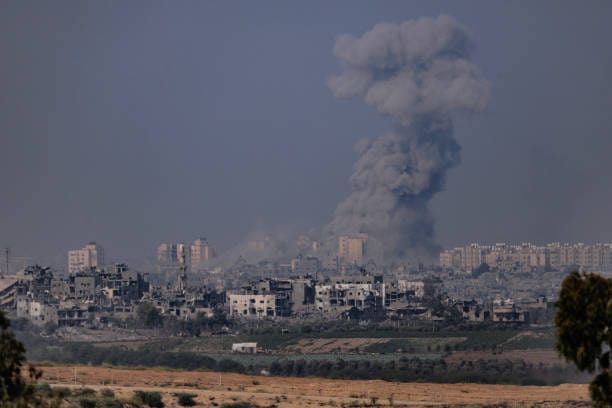On the Brink: Gaza's Looming Descent into Disorder Warns Former Israeli Intel Chief

In a stark warning that has resonated across political lines, Israel's former military intelligence chief has voiced concerns that the Gaza Strip is teetering on the edge of chaos. Tamir Hayman, who now leads the Institute for National Security Studies (INSS) in Tel Aviv, cautioned that without strategic intervention, Gaza could descend into a state of lawlessness and violence.
Hayman's comments come at a critical juncture as the region grapples with the aftermath of recent conflicts and the ongoing humanitarian crisis. He urged Israel's leadership, including Prime Minister Benjamin Netanyahu, to consider a comprehensive approach that includes an indefinite ceasefire and collaboration with a reformed Palestinian Authority to restore order.
The retired general outlined a roadmap for "the day after," which was released by INSS last Friday. He highlighted the risk of a perpetual war of attrition, where "endless friction" with neighboring entities could leave Gaza under the oppressive rule of Hamas or, worse, in the grips of a power vacuum where various armed groups vie for control.
Hayman's call to action is not just about preventing further conflict but also about seizing a fleeting opportunity to establish lasting peace. "Israel will not have any other opportunities," he stated, emphasizing the urgency as the US presidential elections approach.
Netanyahu has historically dismissed the notion of a Palestinian Authority-ruled Gaza, and ceasefire negotiations have been at a standstill. Hamas negotiators have reported difficulties in identifying and tracking down 40 Israeli hostages, a critical component for the first phase of any agreement.
The Palestinian Authority, expelled from Gaza by Hamas in 2007, governs parts of the Israeli-occupied West Bank. Hayman's proposal suggests working with a reformed version of this body to avoid "chaos" and "no man's land" in Gaza.
The international community, including the United Nations and various human rights organizations, has expressed concern over the deteriorating situation in Gaza. With famine looming and the civilian population caught in the crossfire, the need for a stable governance structure has never been more apparent.
As the world watches, the question remains: Will Hayman's warnings be heeded, or will Gaza fall into the abyss of chaos he so vividly depicts? The answer lies in the hands of those at the negotiation table and the international actors who can influence the course of events in this troubled region.



